Day 1 | Trowulan | Trowulan, former capital of the Majapahit Empire, featuring ancient ruins and relics that showcase Indonesia's rich history. | 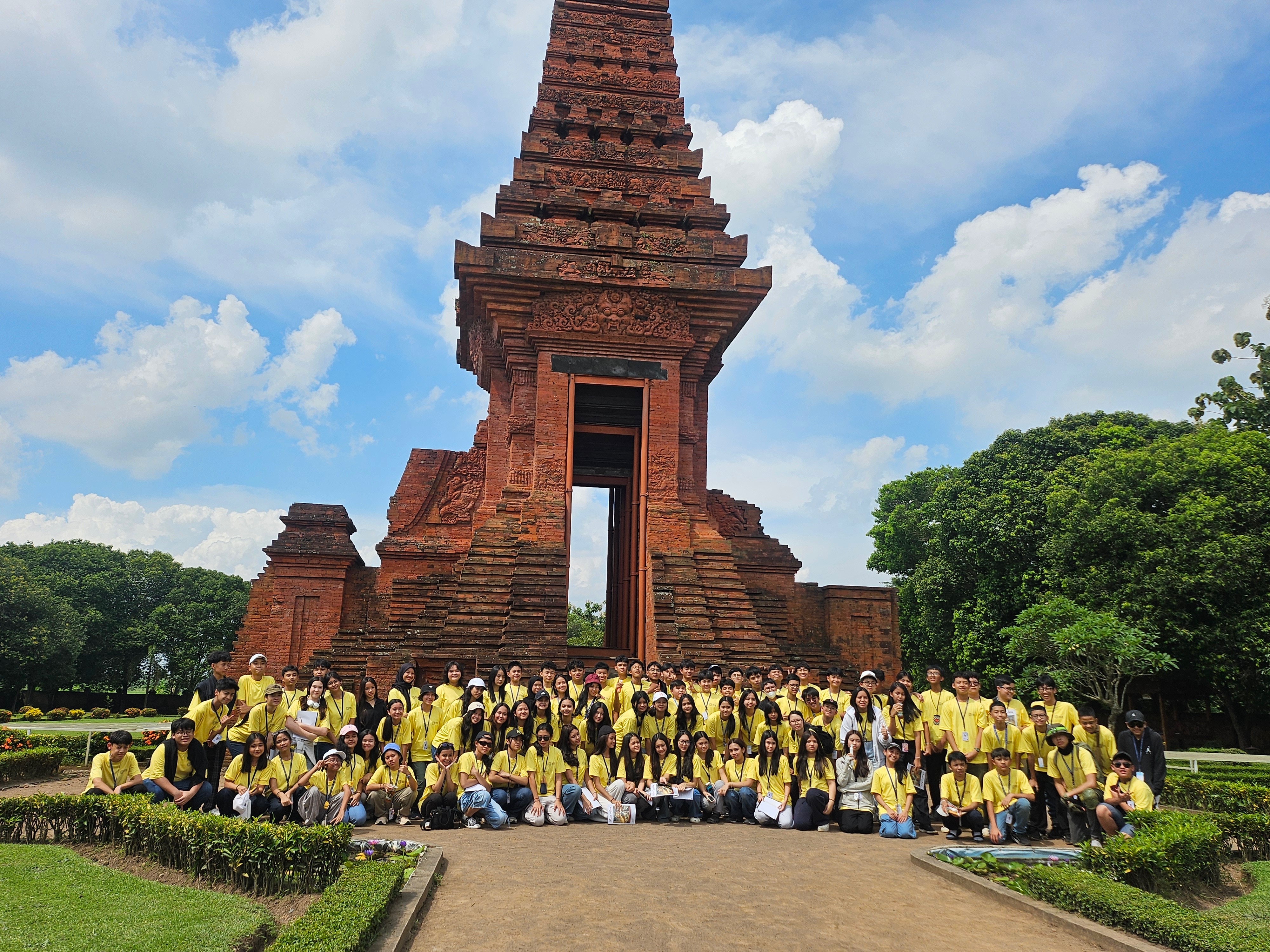 |
| Day 1 | Bajang Ratu | Bajanga 14th-century red-brick gate in Trowulan, East Java, from the Majapahit era. It features detailed carvings and once marked a sacred area. | 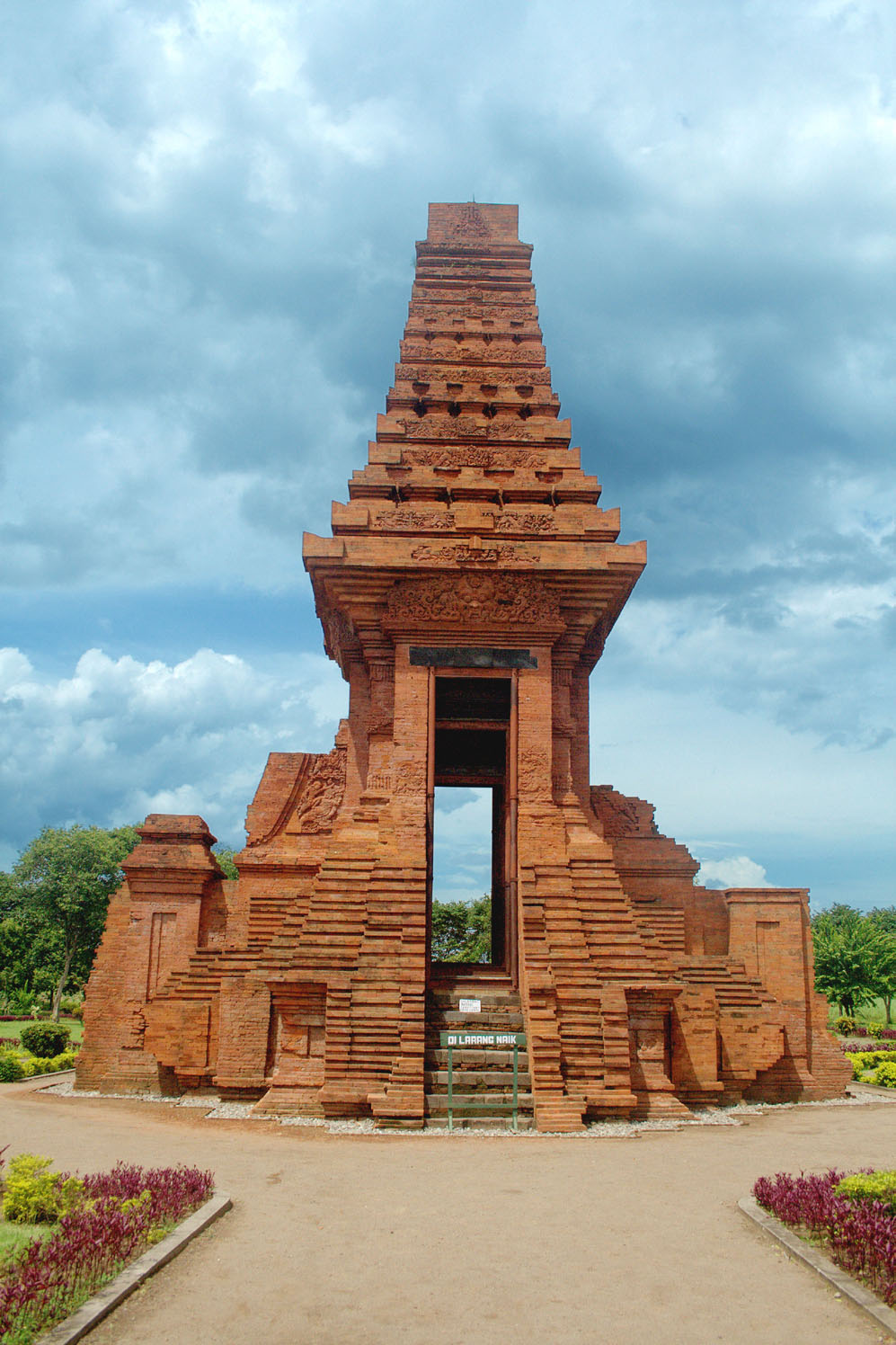 |
Day 2 | Tracking and Observation in Sumber Lumpang | Sumber Lumpang in Trawas is a peaceful spring area with easy trekking through lush forest, perfect for enjoying nature and fresh air. | 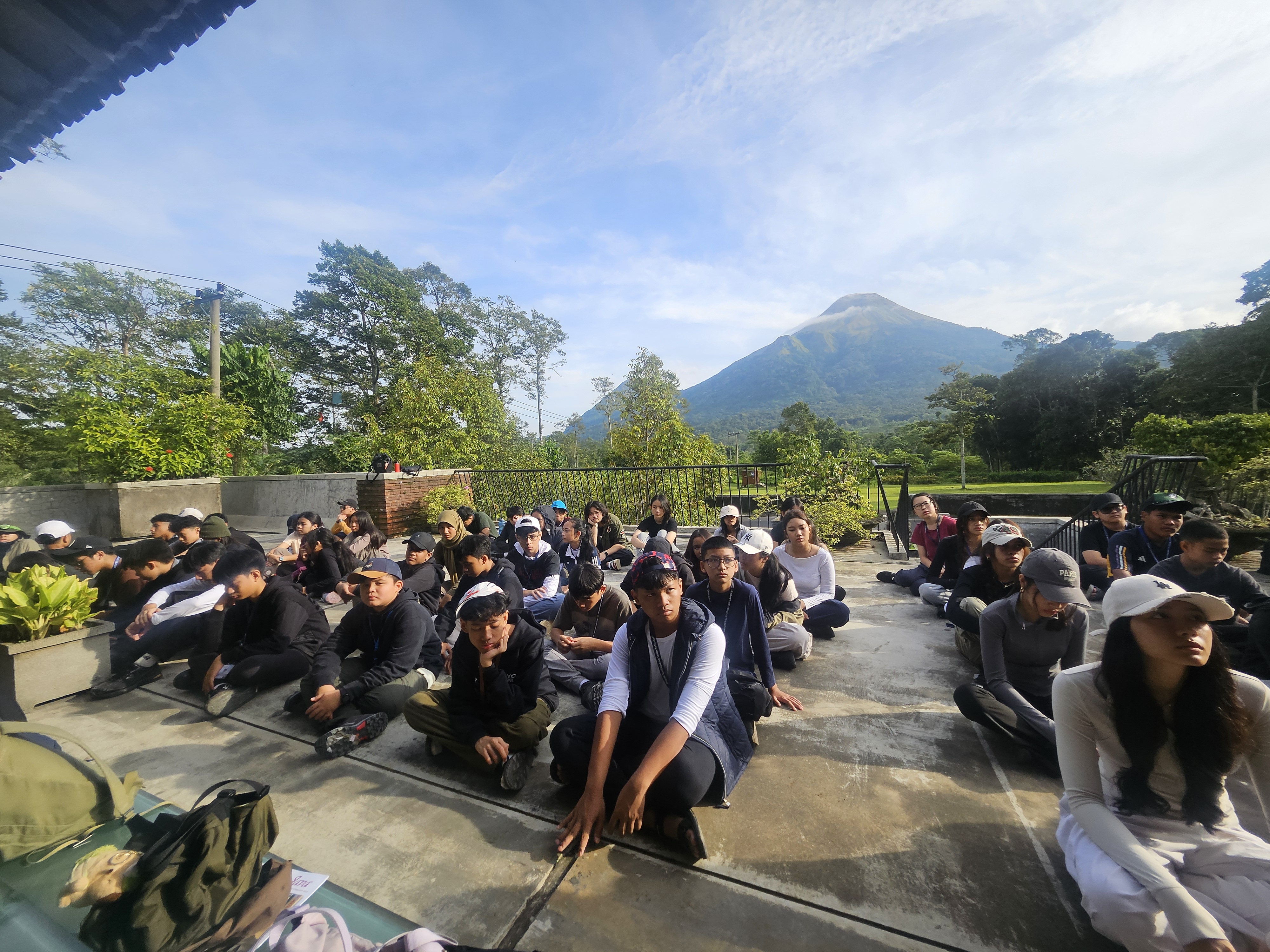 |
Day 3 | Community and Service in the Local School | We went to the local school in Trawas to teach the students there, and we also donated school supplies. | 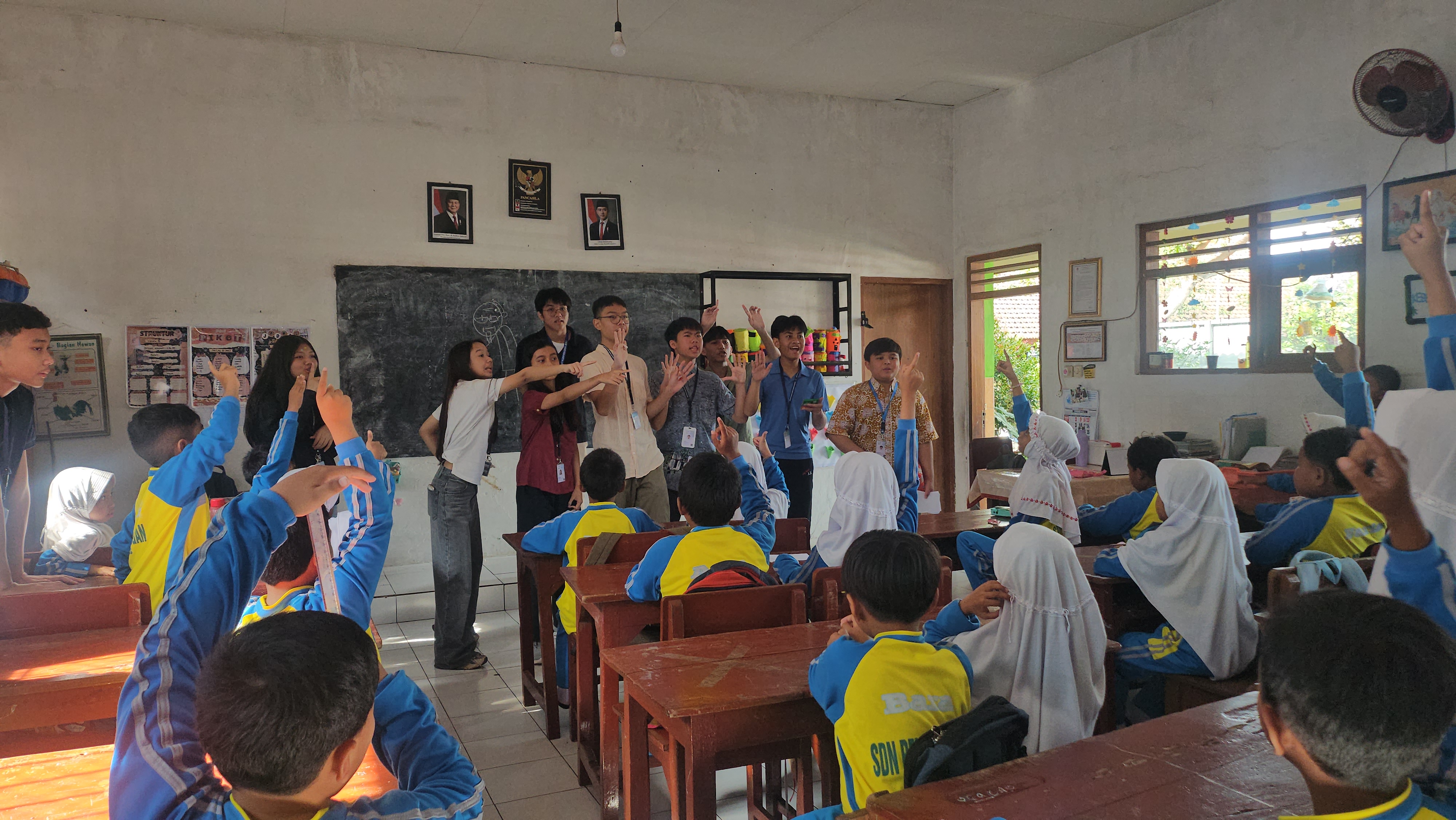 |
|
Day 4 |
Traditional Living - Daily Life in Majapahit Era
In the Majapahit era, people in Trawas lived simple lives as farmers, traders, or craftsmen. They followed Hindu-Buddhist beliefs, with temples and rituals being part of daily life. Trawas was also a spiritual area with many ancient sites.
|
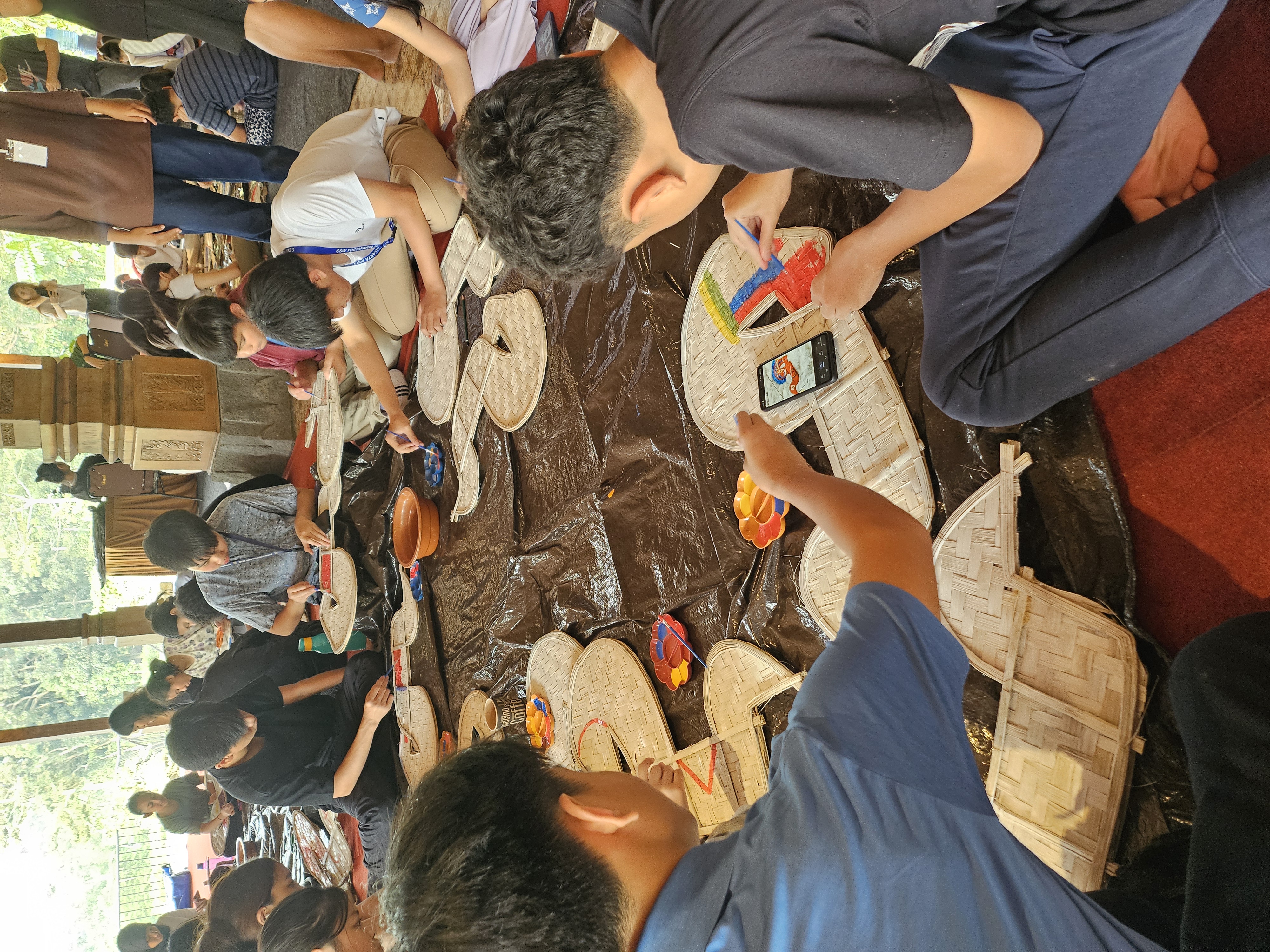 |
|
Decorating Jaran Kepang
Decorating a jaran kepang (woven bamboo horse) involves painting it with bright colors and adding details like eyes, harnesses, and patterns. Some are adorned with tassels, fabric, or mirrors to enhance their look in performances.
|
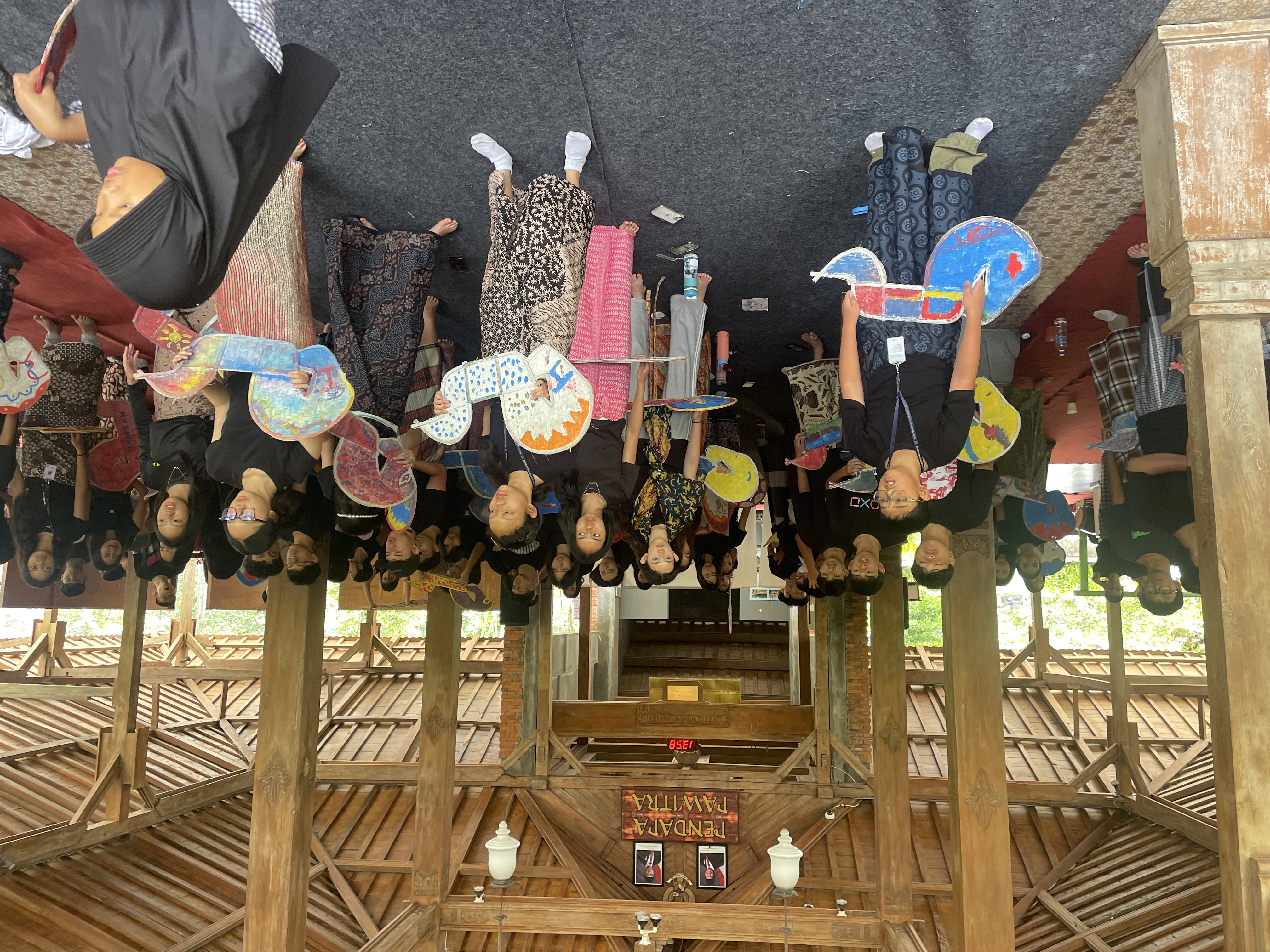 |
|
Traditional Market
The traditional market in Trawas is a lively place where locals sell produce, snacks, and handmade goods. It’s a social hub in a friendly, rural setting.
|
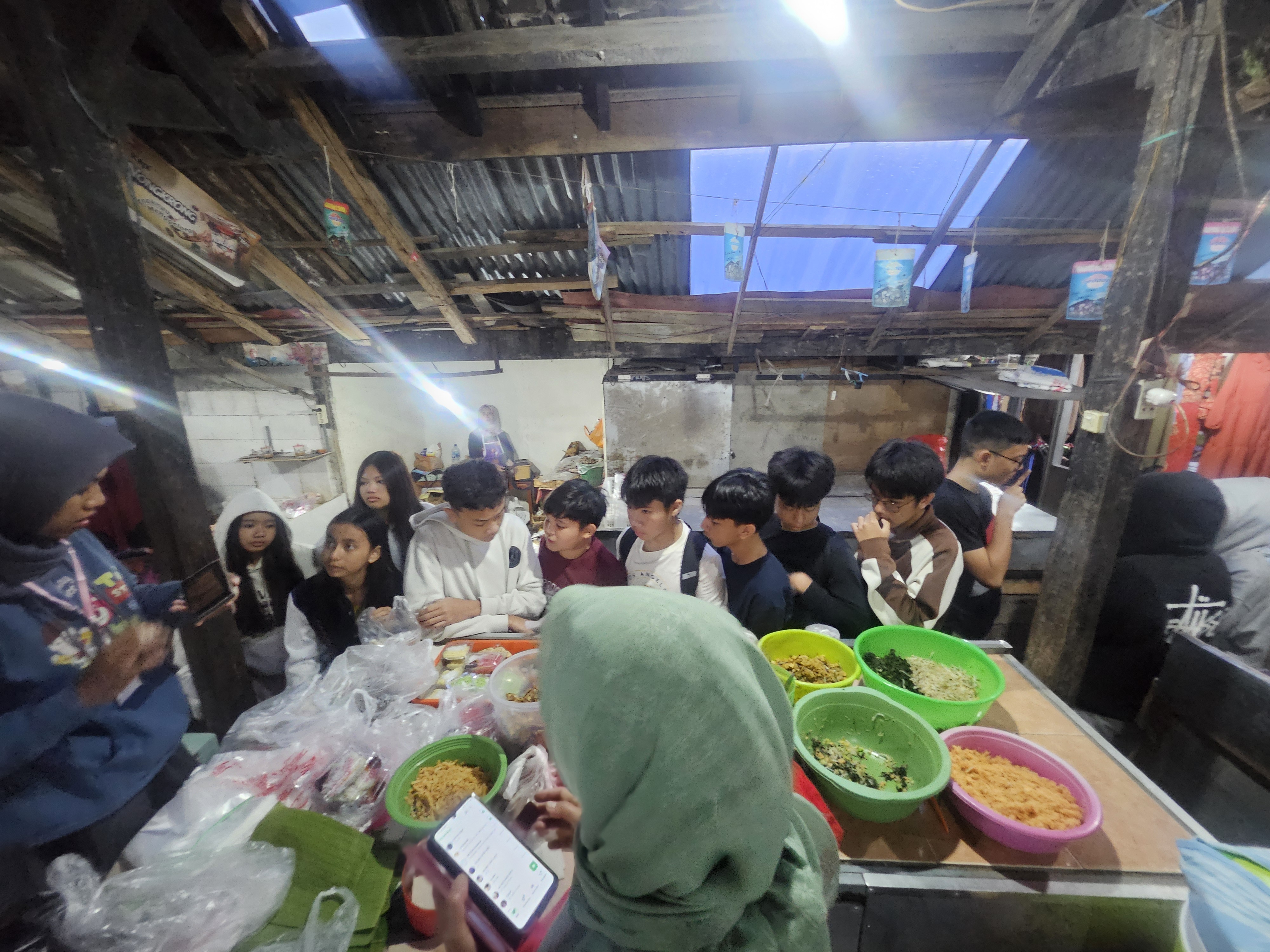 |
|
Agroforestry Activity
Agroforestry in Trawas combines farming with tree planting. Farmers grow crops with trees to improve soil and support sustainable living.
|
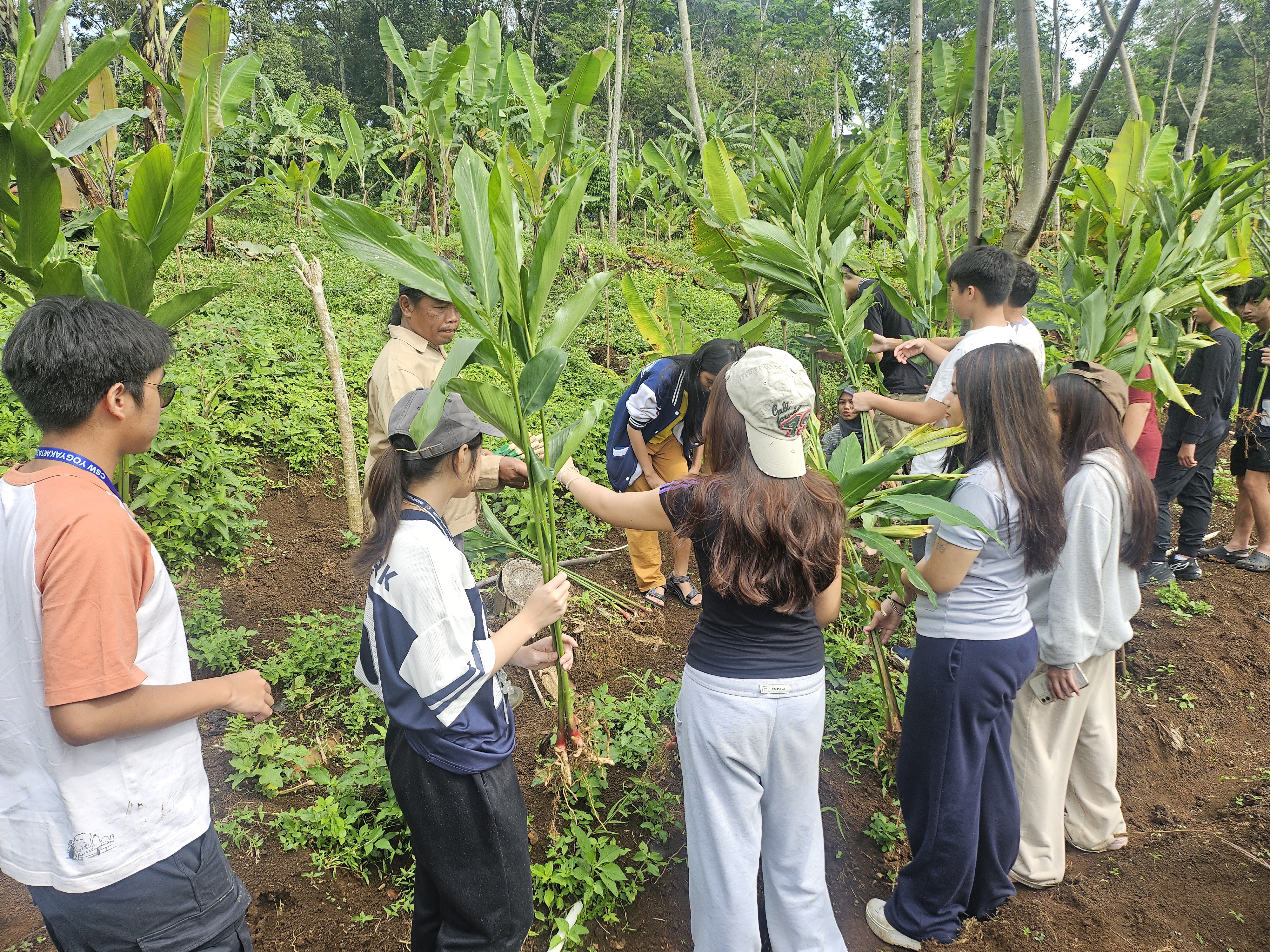 |
|
Earth Offering (Sedekah Bumi)
Sedekah Bumi is a traditional ceremony where villagers offer food and pray for blessings, prosperity, and a good harvest.
|
 |








